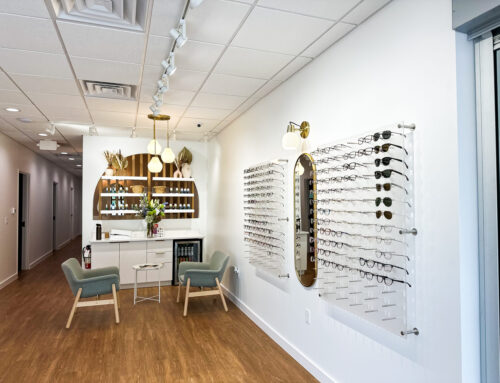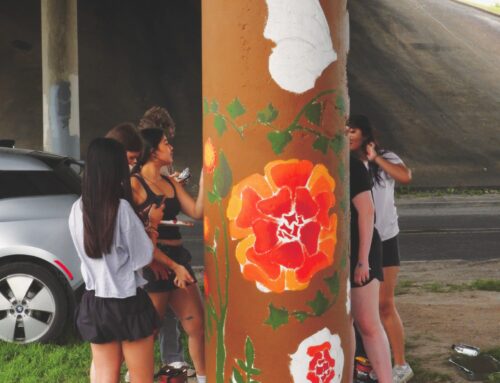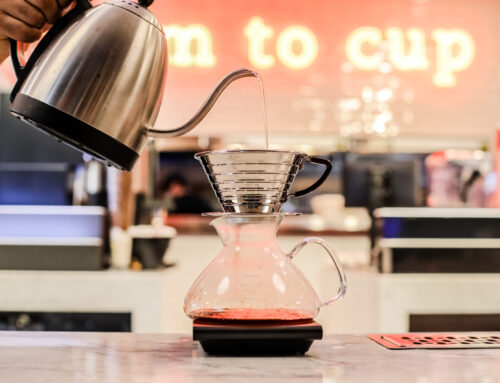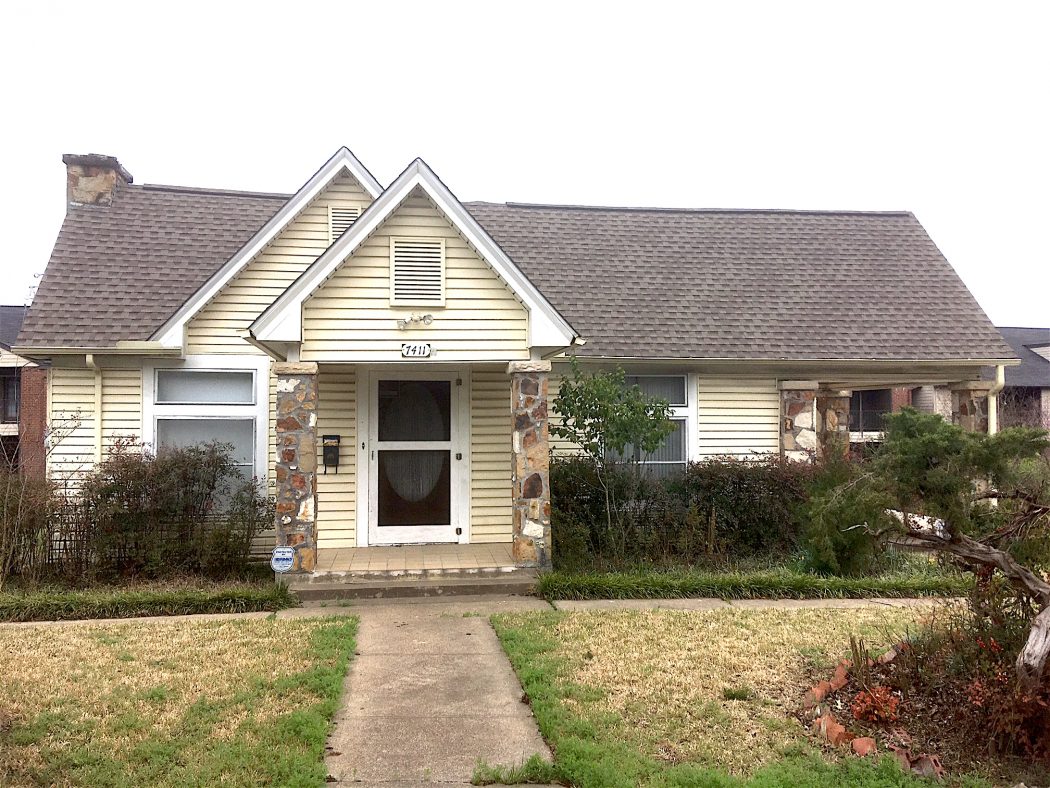
Photo by Scott Dorn
The history of 7411 Coronado tells the tale of resident Leo C. Mills, an opinionated resident whose life story includes racist threats, violence, gambling and, of course, an antique shop. The historical saga came to light thanks to via the Dallas Morning News archives.
East Dallas is home to frequent conflicts between those who want to preserve history and those who want to create wealth. New business and home builders often battle historic preservationists in the neighborhood, and sometimes a site is bulldozed before its history is known.
Leo Mills was born in 1889 in Dallas County, son of Charles. F. Mills. Charles Mills was part of the Koon Kreek Klub, an exclusive hunting and fishing lodge near Athens, Texas, with a 40-year waiting list. The club was founded by William H. Gaston of East Dallas road fame. Charles Mills helped organize horse races around Fair Park at the turn of the 20th century via the Dallas Driving Club (which was before cars, so not that kind of driving).
In 1921, the News reported that Leo Mills was the secretary of the Fair Park Improvement League. He would go on to be associated with the area for better and worse over the next few decades. His wife was on the PTA for Mount Auburn Elementary. But the image of the squeaky clean couple would soon erode.
In the thick of the Great Depression in 1934, Texas Rangers arrested Leo Mills for concealing stolen property when several stolen slot machines were recovered in Fair Park. Leo Mills argued that he fairly purchased the machines and said he had bills of sale for the equipment.
The next year, as Fair Park prepared for Texas’ Centennial celebration, the city purchased many lots in Fair Park. Leo Mills owned 21 lots and 10 homes in the condemned area. He protested against the city’s bid for the property, saying he wasn’t offered enough. He said the city was offering him around $3,000 for two properties that he figured were more than $3,000 each. “That doesn’t include anything for my fine trees,” he said at the time.
Later that decade, Dallas outlawed slot machines. Leo Mills was the city’s largest operator, and didn’t take kindly to the attack on his business. He called the move to outlaw slot machines “political footballing” and said it would hurt small time operators whose machines helped keep the businesses afloat. “All I can see is that someone wants some publicity,” he said.
Even as an older man, Leo Mills kept things interesting. In 1949, three “young thugs” attempted to break in and rob him at his house on Coronado. Leo Mills heard a knock and a man said he had a special delivery. He opened the door to a gun muzzle, but quickly grabbed it and a fight ensued. He somehow evaded the three men and ran into the driveway yelling for help. He made it to a nearby phone and called police, suffering blows along the way.
Leo Mills owned the lot next to his house at what is today the corner of Coronado and Grand, which was an antique shop. He said the shop went out of business when the area was zoned residential. At a city council meeting in 1950, he threatened to build 164 negro houses on the property if they didn’t rezone the area commercial. Mayor Wallace Savage, a Swiss Avenue resident, asked if Leo Mills was threatening the council.
“No, but I am not going to stand for being kicked around,” Leo Mills said. “If you keep it residential, it’s going to be negro. A few houses may be bombed, but I’ll just build some more.”
Things quieted down for Leo Mills after that, and he died at the age of 90 in 1980. He is buried in Oakland Cemetery in South Dallas. Was he a small business owner, a gambler, a gangster who narrowly avoided a hit? Either way, it is an interesting tale and part of the history of East Dallas.
Today, the piece of history at 7411 Coronado looks like it could be next on the chopping block, as it sits between apartment complexes. Until recently, the adjacent lot had rusty horse-drawn farming equipment, but the home may not be long for the world.
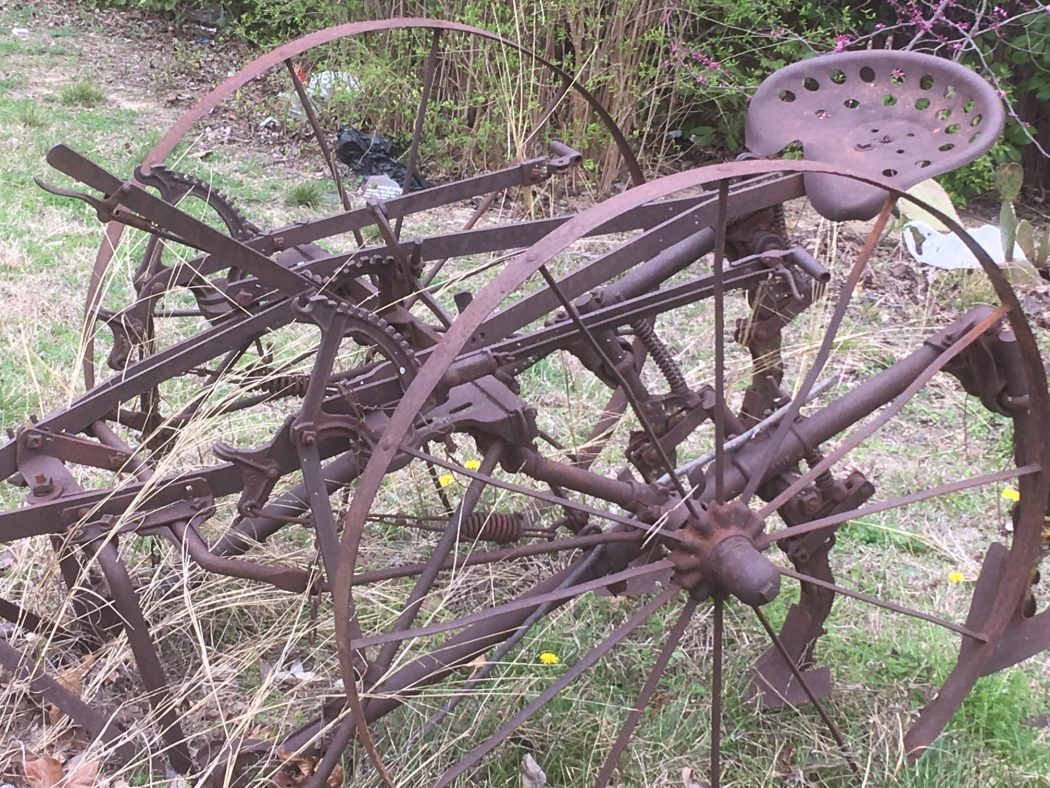
Photo by Scott Dorn


